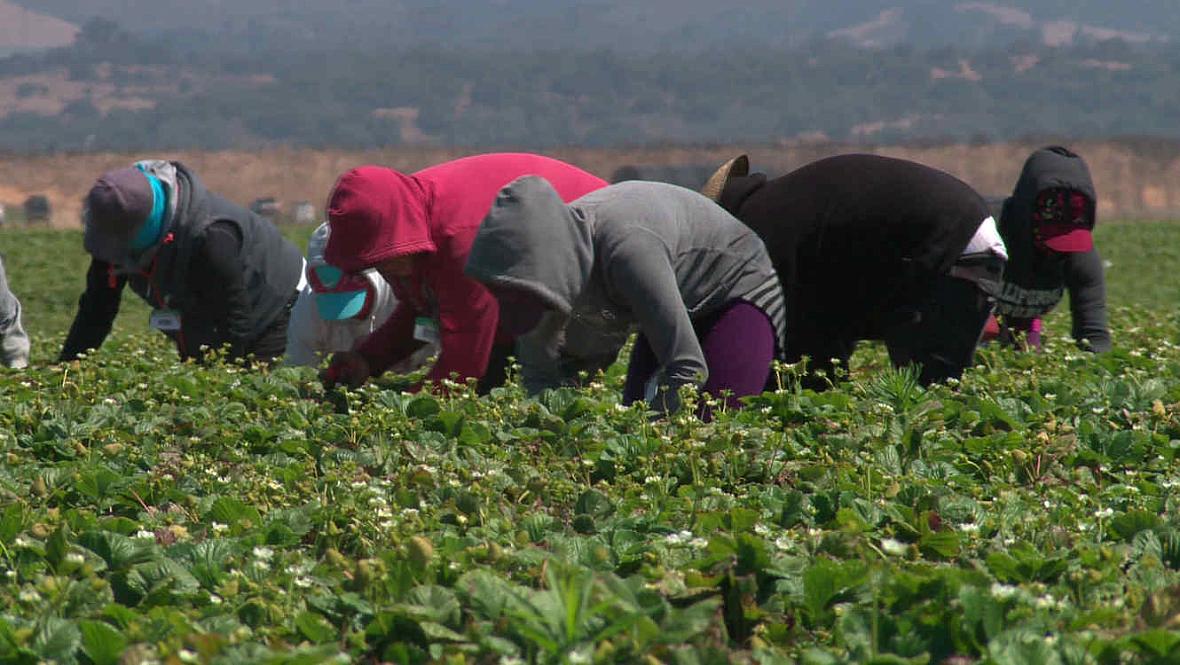On Broken Backs
With the support of the Dennis Hunt Fund, a program of the Center for Health Journalism at USC. In Davis, Cristina Londoño, Noticias Telemundo.
Other stories in the series include:

Araceli Hernandez has a broken back and broken dreams.
When the pain allows, she cooks sitting down.
At 47, she feels 90.
Araceli: "When I am home alone, I lay in bed and cry as I roll over in pain."
Araceli has been disabled for 6 months, thanks to four herniated discs that won't heal. It's the result of 26 years working in the fields, and an injury she didn't take care of.
"My mistake was that I kept working through the pain, and my boss allowed it," Araceli said.
That kind of constant pain is something many workers know intimately.
Juan Valenzuela: "When the pain is too strong, I'll take pills. But the pain is always there."
Juan is a waiter at a hotel, and Armando handles merchandise at a supermarket. In the afternoon they are partners in construction.
Armando Morales: "We don't want to break our backs, but we have to."
Disability due to back pain has become a public health crisis, costing the U.S. economy over $100 billion dollars in medical services, lost productivity, and wages.
Farmworkers are amongst the most vulnerable.
The only occupation-specific study says over a third suffer from debilitating back problems every year.
Those are numbers one activist contends are way too low.
"They all suffer in silence, I haven't met one, that didn't complain about their back," said Anne Lopez, a farmworker rights activist.
Many suffer in silence she says because they are undocumented.
Lettuce, asparagus, and strawberry are amongst the toughest harvests for farmworkers; they spend around 8 of the 10 hours they are out here in the fields bent over. That is longer than the number of hours of sleep they get at night.
Benedicta de Jesus believes she's around 40 years old and can't remember the last time she went to the doctor.
Benedicta de Jesus: "With tears in my eyes, slowly you just keep working."
While most of the population retires between 65 and 70 years-old, experts say the backs of farmworkers give out 20 years earlier.
Araceli: "We retire when we become worthless, can’t move or do our own things. It happened to my dad, and my mom."
But she admits that if the Virgin Mary grants her the miracle she prays so hard for, she would return immediately to the fields, hoping her son doesn't have to.
Areceli: "I am willing to break my back so my son can become someone who is important — I don't want him working in the fields."
[This story was originally broadcast by Telemundo.]

